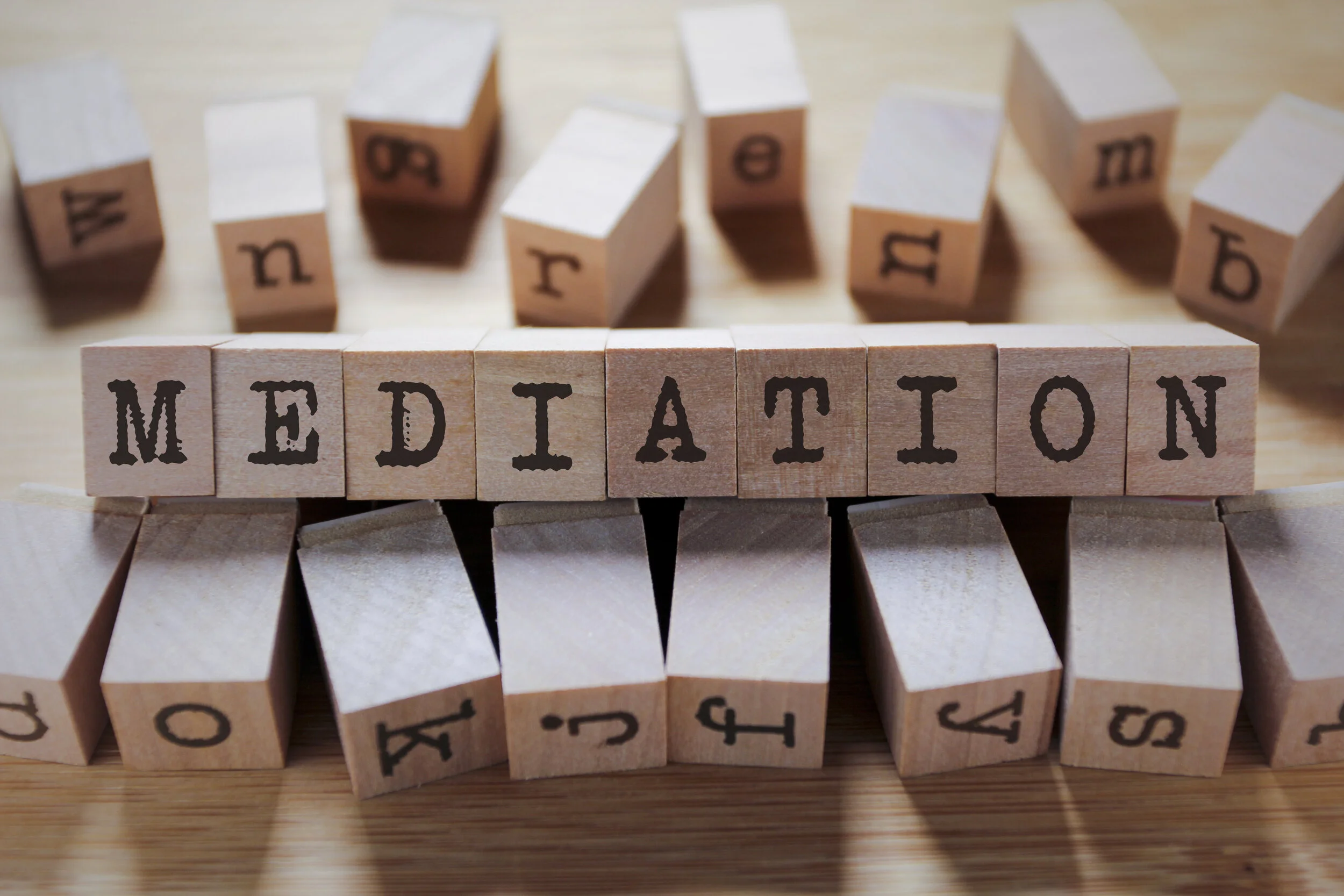Five Principles to Maximize Chances of Success in Mediation
By: Rachel A. Gupta
January 19, 2021
As a current mediator who had for years also been litigation counsel representing clients in mediation, I have noticed that there may sometimes be a disconnect between what mediators and litigators each expect from mediation and from each other. These differences can potentially limit the chances of a successful negotiated resolution. From selecting the right mediator for a particular case, to preparing a useful mediation statement, attorneys can help maximize the chances of a successful mediation by considering the following five principles.
Mediators are not one-size fits all. Selecting the right type of mediator is critical.
Clients rely extensively on recommendations from their outside counsel in mediator selection. In many instances, those law firm recommendations are based on not much more than attorneys at the law firm having previously used certain mediators. Mediator selection, however, is unfortunately not one-size fits all. To avoid ending up with a mediator who is not the best fit for the case, parties should consider the specific issues and needs for the case at hand, and not just the popularity of the mediator.
To maximize the chances of a negotiated resolution, litigators and their clients should consider what they are seeking from the mediator prior to selecting one. A few questions to consider:
Would the parties benefit from receiving a third-party evaluation of the merits of the case?
Does the mediator need to manage a contentious relationship?
Would the parties benefit from a mediator who can help brainstorm creative and complex alternatives to monetary settlements?
Does the mediator need to have expertise in a specific industry or area of law in order to understand the issues separating the parties?
For example, some mediators consider themselves merely facilitators and are loath to offer the parties a third-party opinion on the legal issues at hand or the parties’ realistic chances of success in court. Other mediators are willing to take a more evaluative approach where the parties’ perspectives on the legal issues are so far apart that they present an impasse to any negotiated resolution. If parties are expecting and require a third-party opinion to overcome impasse, they should choose an evaluative mediator.
As another example, in a case involving a contentious relationship between the parties where emotions are high, it is critical to find a patient mediator with strong emotional intelligence to diffuse tensions and help foster a more collaborative tone and environment. Whereas, in other cases, the most important attribute for a mediator may be concentrated expertise in a certain industry.
Attorneys and their clients should take the time to evaluate what the obstacles to settlement are for their particular case and consider the qualifications of a mediator that can best help them achieve a negotiated resolution.
Mediation is not litigation and requires a different strategy and approach.
We have all had mediations where lawyers for one or both parties refused to budge an inch from their courtroom arguments and conducted themselves as though they were presenting their case to a judge or jury. Despite the fact that the litigation had been proceeding for years and both sides were familiar with the other’s positions, the lawyers continued their same speeches about why they were right, and the other side was wrong. And in many of these cases, the parties—not surprisingly—reached an impasse.
Unlike in litigation, however, a mediator is not a judge and will not dictate the outcome of the case. The parties, not the mediator, control the result. As such, the attorneys do not need to convince the mediator of their rightness or their adversary’s wrongness. Instead, they need to find ways to communicate with their adversary in a way that is collaborative, constructive, and ultimately enables them to achieve what they desire in order to resolve the dispute. A mediator helps foster that dialogue.
Accordingly, treating mediation as you would a trial—giving adversarial opening statements, using argumentative tones, and presenting with stubborn confidence—will likely only frustrate the mediation process. Similarly, getting bogged down in who is right and who is wrong on the merits is not likely to be collaborative or productive. Instead, everyone can essentially agree to disagree as to whose Kool-Aid is better. To the extent that it may be necessary to explain any demand or counteroffer by referencing litigation arguments, a mediator can help with the messaging.
Similarly, rather than regurgitating a party’s motion to dismiss or summary judgment brief in the mediation statement, it is better to streamline mediation statements to focus on the issues pertinent to the mediation process—which may or may not include gating legal issues. The best mediation statements are those that help the mediator understand why the parties are where they are (background of dispute, procedural status and nature of the case), what issues need to be resolved prior to reaching a negotiated agreement (gating issues for settlement, which are different than what a judge or jury will decide at trial), and what is important to a party in any negotiated resolution (what the party needs and/or requires in an agreement). (A more detailed post on the Do’s and Don’ts of Mediation Statements is coming next month).
In the same vein, clients should consider whether their primary litigation counsel is the best person to lead the discussions at the mediation, especially where there is a history of contentious and hostile litigation. This may sound controversial, and I am not proposing that parties spend money on second counsel for mediation as that may undermine the cost-efficiencies mediation offers. Rather, consider taking a good cop/bad cop approach—have another attorney who has a more neutral relationship with the other side be visual and vocal when in joint session. It may help set a more positive tone for the negotiations.
Candid and open communication with the mediator is necessary and will not disadvantage you at trial.
Many litigators are under the misconception that if they acknowledge to the mediator any weakness in their case, or make any concession, that they will have compromised the litigation. Negotiating and acting collaboratively in mediation, however, does not act as a waiver to your ability to put on your strongest case in court if the case does not resolve. On the other hand, putting on your aggressive litigator hat may create an insurmountable barrier to a productive mediation.
One of the most fundamental canons of mediation is confidentiality. Unless you give the mediator permission to share information with the other side, anything you say in caucus is confidential. Moreover, anything you say to your adversary in mediation is considered a confidential settlement communication, and generally speaking, cannot be used in court. In any event, the mediator is there to assist you and explore whether there is common ground between the parties. When both sides do nothing but posture, they are inhibiting the mediator and may be limiting the chances of success.
Parties maximize their chances of resolving their dispute in mediation when they are candid with the mediator. Trusting the mediator to keep conversations confidential while she actively works to bridge understanding between the parties is key. Without both components, the mediator may be restricted from helping the parties make meaningful progress.
Clients representatives should take an active role in the mediation.
Clients are often under the misimpression that, as with the litigation itself, their lawyers are the face of the mediation and responsible for its outcome. They look to their lawyers to select the mediator and for guidance as to what should be said or not said. However, the most successful mediations are those where the client representatives have taken an active role in the mediation process. With respect to mediator selection, clients are often in the best position to determine a mediator that best fits their needs. For example, corporate clients know what type of mediator may be most suited for the case and/or what professional, educational and personal background may help them feel more confident in the mediation process.
Moreover, during the mediation, mediators are interested in hearing directly from the clients. Clients are often the ones most willing to get to the heart of what is really at issue and speak directly to what objectives must be met for an agreement to work and what issues they consider obstacles to resolution. Lawyers should encourage their clients to actively participate, and if they are worried about revealing too much (despite the discussion above), prepare them in advance.
Redefine the definition of a successful mediation.
Many lawyers and clients assume that if they are not able to settle the case at the mediation, then the mediation failed. This is simply untrue. Mediation is a learning opportunity. Regardless of whether a mediation leads to a negotiated resolution, it is still a chance to evaluate one’s own case, consider what is needed or required in order to reach agreement, and learn how your adversary is thinking about these issues. A constructive and active dialogue during a mediation helps foster an understanding between the parties and bridge the gap, narrowing the issues for reaching a negotiated resolution. In some cases, the parties who had previously been unable to negotiate on their own, develop a communication channel during the mediation that enables them to subsequently finalize an agreement without a mediator. Thus, when both parties are open-minded and come to mediation willing to negotiate in good faith, mediation can be a success even if the parties do not reach an agreement.
Article published on Mediate.com: https://www.mediate.com//articles/gupta-five-principles.cfm


